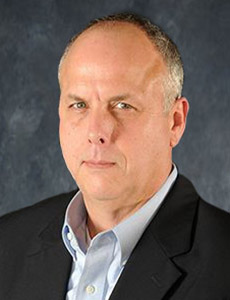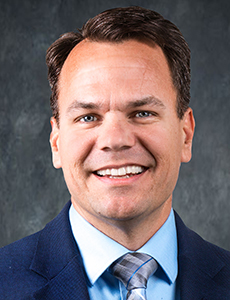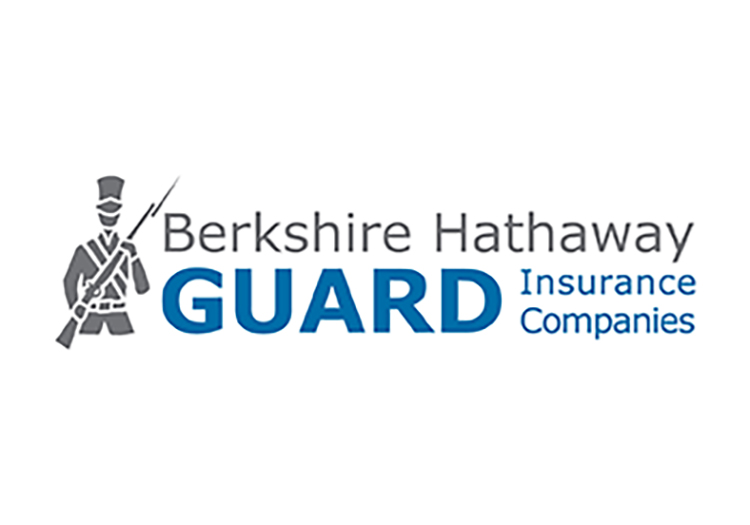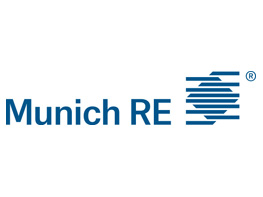Sponsored Content by Engle Martin
Why Carriers Outsource Claims — and What It Takes to Be the Right TPA for the Job

Carriers know that claims management is a necessity. Good claims management keeps their business running smoothly while keeping them engaged as partners with their clients.
Claims, however, are becoming increasingly complex in nature, and recent years have seen a spike in claims volume. Natural catastrophes, a global pandemic, supply chain disruptions, and an increasingly interconnected world have all compounded to make claims management that much more complex for carriers.
Having the appropriate resources available to monitor and address claims isn’t as simple as it once was. Setting up a claims management team is one approach, but sometimes carriers are not able to internally manage the volume or types of claims coming in. That is why carriers will make the important decision to outsource claims, which allows carriers to focus on their business needs and creating profitable books of business through their underwriting practices.
When choosing a partner in such an endeavor, carriers should review what needs they are looking to meet.
“Carriers focused on loss adjustment expense or seeking to go from a fixed-cost model into a variable-cost model, can engage a TPA to help oversee their program and staff it accordingly,” said Russ Ashley, Senior Vice President of Engle Martin Claims Administrative Services (EMCAS) a leading national claims management provider within Engle Martin.
“They might even be looking for an added expertise on claims,” he continued. “A company might lack the knowledge needed for certain subsets of claims, and outsourcing to a TPA brings in an additional layer of intellectual capital to help adjudicate those claims.”
Claims outsourcing can also benefit carriers spread across multiple jurisdictions. Not every state has the same regulatory environment, so having a partner that can handle claims in multiple jurisdictions is an essential value to any claims process.
Here are several key strengths a TPA can offer carriers that choose to outsource claims and how EMCAS is looking to lead the charge.
5 Added Benefits TPAs Bring to the Table

Russ Ashley, Senior Vice President of Engle Martin Claims Administrative Services (EMCAS)
1) Onboarding
The decision to outsource claims requires a lot of thought and preparation. Carriers are placing fiduciary responsibility in their claims partners, and so in order to begin that process, they will want to ensure that the TPA’s business aligns with its own and is prepared to seamlessly onboard them as new clients.
Ashley said, “The TPA that a carrier selects has to be able to seamlessly bring the carrier and its clients on board. They need to be equipped to take on the carrier’s claims environment and act as an extension of the carrier’s brand.”
The first few weeks and even months of starting any new partnership are critical in establishing expectations and detailing the goals for both carriers and TPAs alike. Having well-organized and comprehensive onboarding process will set up a partnership for long-term success well before the first notice of loss.
“A well-vetted onboarding process is key to not only win the business but also keep and retain the business,” said John Ketch, Senior Vice President of Business Development at Engle Martin.
“Your TPA should ask the right questions and meticulously walk the customer through the process so that when the first loss comes in, both parties know exactly what the positive outcome is going to be.”
For the EMCAS team, it’s imperative that clients know their claims are in good hands from the start. EMCAS’ Client Services team, along with key stakeholders for the program, is responsible for onboarding once an agreement is met with a new customer. Each program is then assigned a dedicated Client Services Specialist, account manager, and a designated team that oversees their program’s needs.
Additionally, EMCAS has made a concerted effort to onboard customers in such a way that leaves them feeling confident. The program examiners act as an extension of the carrier’s team when managing a claim, providing a white-glove service that enables the carrier’s client to feel like they are part of a single, seamless process.
“We’ve designed our strategy around being able to jump into the process, acting as our carrier partners, so that their clients never miss a beat,” Ashley explained.
2) Variable-Cost Solution
Claims can be a fickle thing. Carriers will never know precisely when a first loss might come in or when their Policies-in-Force (PIF) might be impacted in a significant way.
One month a carrier may have an influx of 100 claims, while the next month they may only see 25. That can lead to an idle insurance carrier’s claims department and unnecessary staffing costs.
By outsourcing, carriers can take this fixed-cost model, where the carrier is tied to staffing a whole office that’s addressing claims volume as it comes in, to a variable-cost model, in which that same carrier can take some of that uncertainty out of its claims environment and share it with a TPA.
“It puts the stress of handling the claims volume onto the TPA,” Ketch said. It also provides a cost savings since the carrier only pays for services rendered which allows the carrier to outsource the planning, hiring, flex, and scale onto the TPA and off of the carrier’s claims team.
3) Expertise

John Ketch, Senior Vice President of Business Development at Engle Martin
Having a general understanding of claims is of vital importance, but when it comes to understanding the nuances of challenging and complex claims, a TPA should be able to offer its partners an even deeper breadth of knowledge on various claim types.
“While two claims may look similar or have elements that overlap, each claim must be addressed with a trained eye, because no two claims are exactly alike,” said Ketch.
An expert examiner will know how to manage each claim’s complexities. They will know how to read the policy, understand any endorsements, and investigate a claim when needed. That assessment allows the examiner to connect the correct experts to the situation and arrive at a solution “quickly, promptly and as professionally as possible,” Ketch said, all while properly adjusting the loss.
For EMCAS, this idea of having experts with experience on the case is an essential function of the team. With three property units and one general liability unit, EMCAS is committed to furthering the professional development of its examiners to provide carriers with the skills needed to handle claims.
“A good TPA partner should continually train their team on new regulations and support outside educational resources for its examiners,” said Ashley.
Engle Martin has developed Engle Martin University (EMU), a program designed to provide continued education and training to its examiners and adjusters. The training provided by EMU allows team members to hone their technical and communication skills needed to manage claims. “We also have a robust mentorship program where our examiners can be mentored into higher roles and gain additional skills and expertise,” Ashley added.
All this continuous education is given with the goal of bolstering carriers’ confidence in the team they’ve entrusted with their claims.
However, the expertise doesn’t have to end with the examiners; partnering with a skilled TPA also means carriers have access to a wealth of knowledge from the claims handlers themselves.
“We offer customized training to our customers, as well,” Ketch said. “We have presented to underwriting departments on various claim-related topics and the implications that arise if there is a loss.”
4) Technology
In the traditional claims adjusting world, an adjuster would be called upon to physically examine a site in the event a loss has occurred. The process would include conducting a boots-on-the-ground assessment, followed by a review of the assessment which could be lengthy based on the complexity of the claim.
But today, the length of the claim cycle is changing — all thanks to technology.
Claimants can provide video capture, 3D-modeled imaging, and pictures of damages, through their computers or smartphones, and upload them to their designated examiner in seconds. These pictures and video collaboration provide examiners with the real-time data they need to properly adjudicate a claim right from their desk.
“That instantaneous recording and being on-site virtually has dramatically reduced the cycle time of claims,” Ashley said. “The adjustment can be handled in a matter of days versus weeks.”
Partnering with a TPA that utilizes such technology can go a long way in reducing the length of a claim for the carrier, as well as instill confidence in the carrier’s clients that their claims are being reviewed promptly and efficiently.
5) Natural Catastrophe Insights
In the event of a storm or fire, claims tend to spike in the aftermath, especially for carriers servicing clients in multiple states affected by the same natural catastrophe. A well-trained TPA partner will be able to provide surge capacity by utilizing internal and field resources to respond to policyholders’ needs.
Depending on where an event takes place, EMCAS is prepared to provide services and support to their clients during their time of need. EMCAS is equipped to adjudicate claims right from their desks to keep the claim moving through the process.
“We’re familiar with our clients’expectations from day one, because our onboarding process enables us to fully understand what it is they want out of our partnership” Ashley said.
“We know what the volume looks like, and when a massive event like a hurricane brings in more claims, we’re able to continue that high-quality adjustment in a peak claim environment,” he explained.
The Hard Market’s Impact
In addition to offering carriers a unique set of claims management opportunities, TPAs are also poised for some growth opportunities themselves. The hard market cycle has brought about an increase in sales opportunities for TPAs.
“There’s an increase in interest from traditional insurance players to write in the excess and surplus lines space,” said Ketch. The creation of captives is also on the rise, with Fortune 1000 entities looking to invest in self-insured retentions (SIRS).
Such trends are giving TPAs a space to step up and create even more value for their customer base.
That’s partially because Fortune 1000 entities aren’t looking to be experts in claims or claims management; their core competencies are outside of insurance, instead focused on what they are producing, manufacturing or marketing. They want creative solutions to manage their claims inside of these retentions and are looking to their TPA partner to provide the claims expertise and resources they need to succeed.
TPAs are in the exciting position to innovate as more clients seek their services. “With the way the market is hardening, and with companies seeking this added claim expertise, there’s going to be a good number of opportunities for TPAs like us to step in and assist with the claims adjudication process,” Ashely said.
Knowing You’re in the Right Hands
When it comes to entrusting their business with a partner that understands the nuances of the insurance claims world, carriers want to know their TPA aligns with their goals and can bring added value to the claims process.
Part of choosing the right partner comes down to knowing if that TPA is keeping up with changing times and is adept to the claims environment. Insurance carrier claims leaders have seen a heightened need for such a partner.
“Due to COVID-19, we have seen an unfortunate increase in the loss of business and an influx of civil unrest claims,” Ashley said. “EMCAS became an outlet for carriers that helped make sure all these new claims were getting properly serviced.”
In addition to staying on top of claims trends, EMCAS has also worked hard to provide the expertise and infrastructure needed to effectively serve as a standalone claims solution or to complement existing operations. Examiner teams are led by EMCAS leaders with 15 to 30 years of property and casualty claims experience, and each examiner has anywhere from 5 to 30 years-experience. EMCAS is dedicated to an unmatched level of quality and service.
To learn more, visit: https://www.englemartin.com/tpa/.
This article was produced by the R&I Brand Studio, a unit of the advertising department of Risk & Insurance, in collaboration with Engle Martin. The editorial staff of Risk & Insurance had no role in its preparation.










